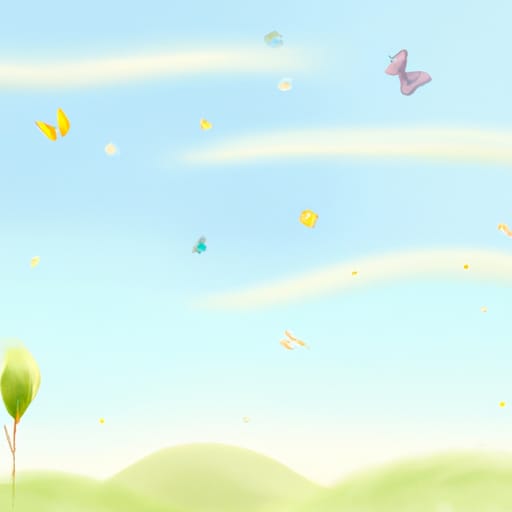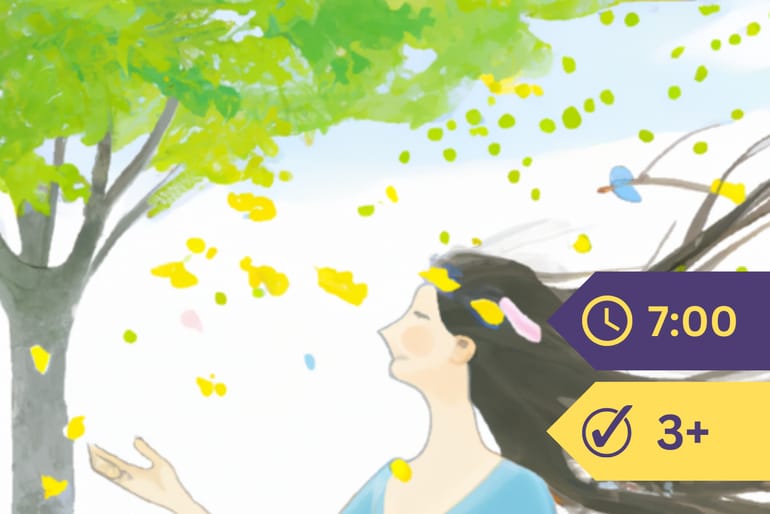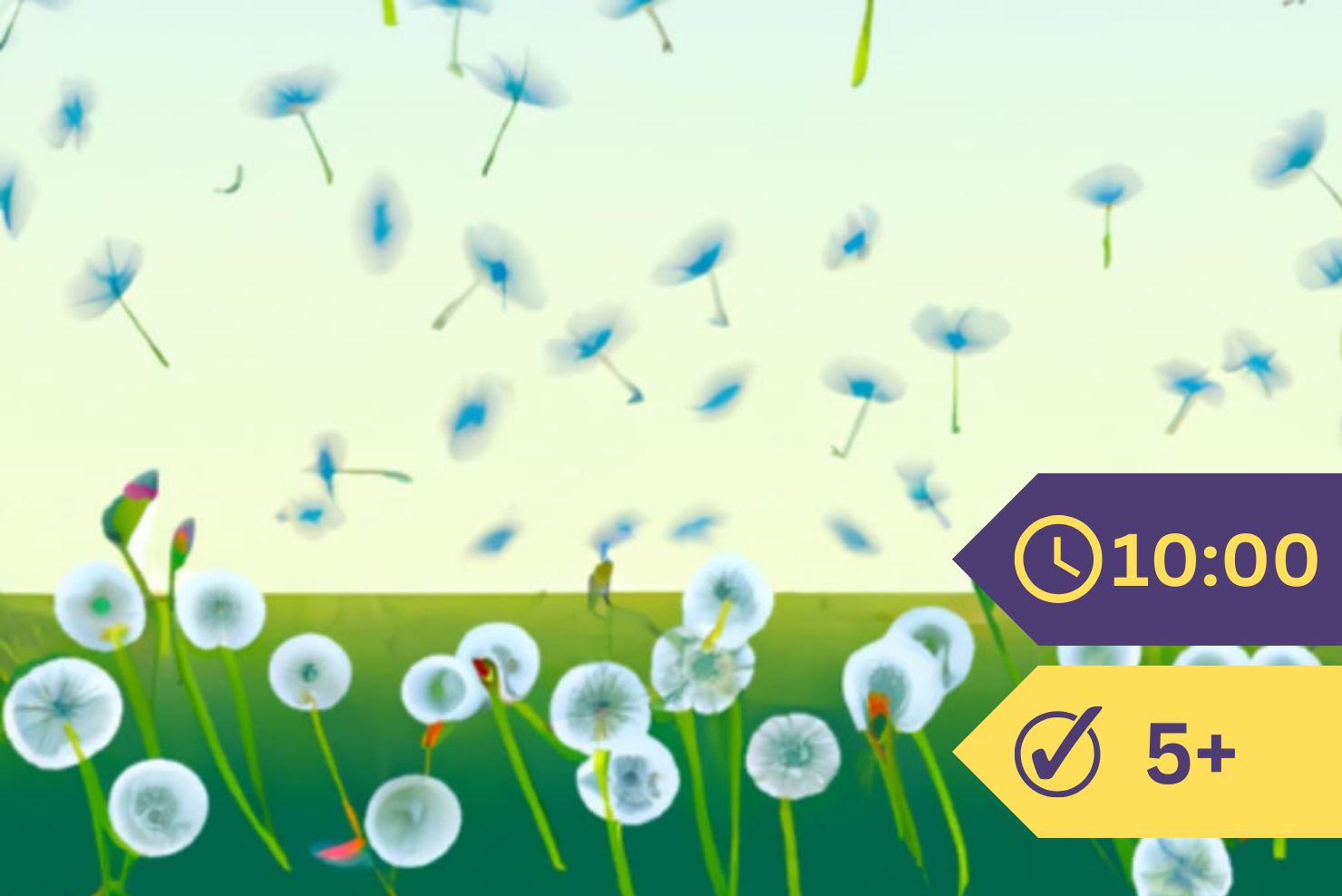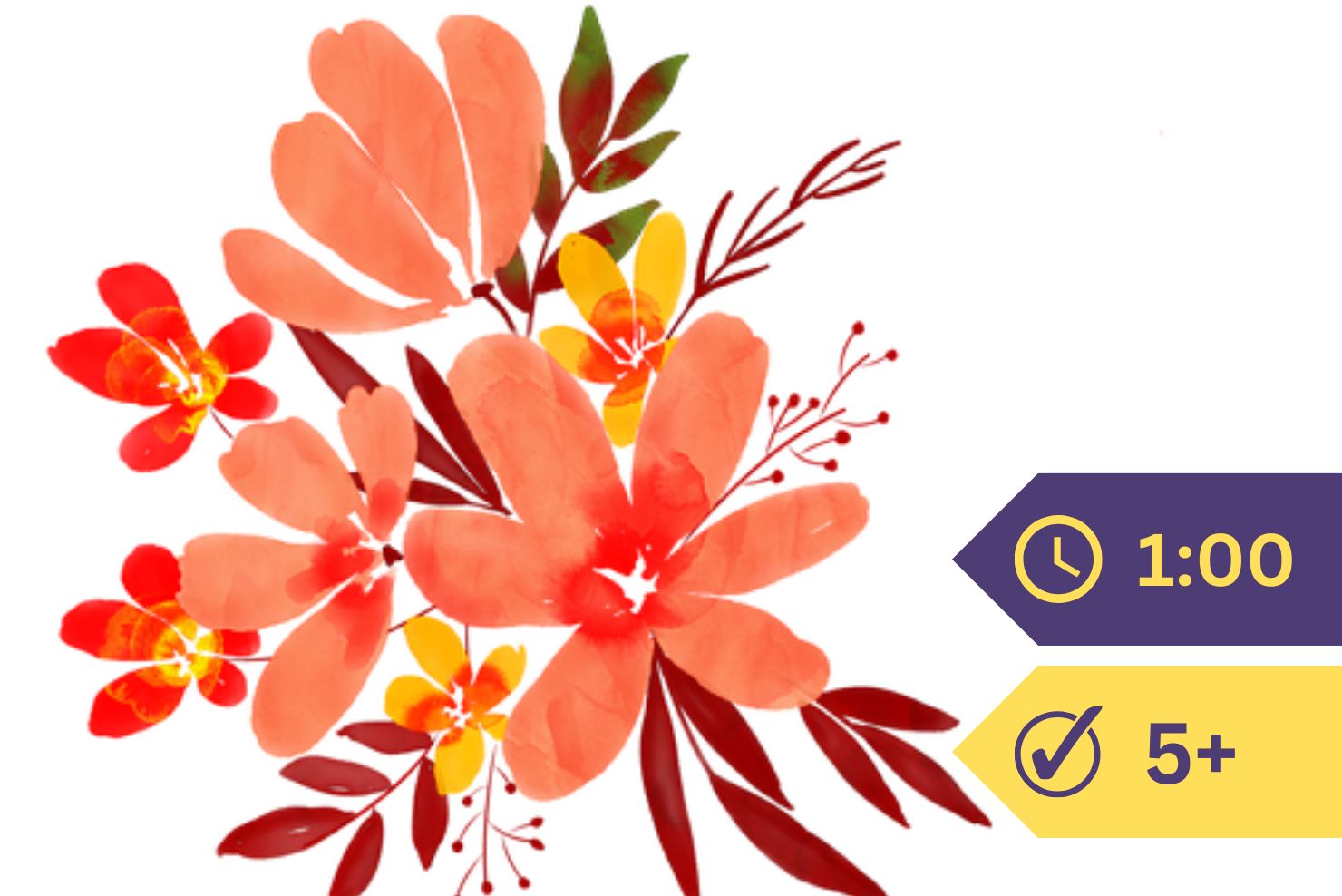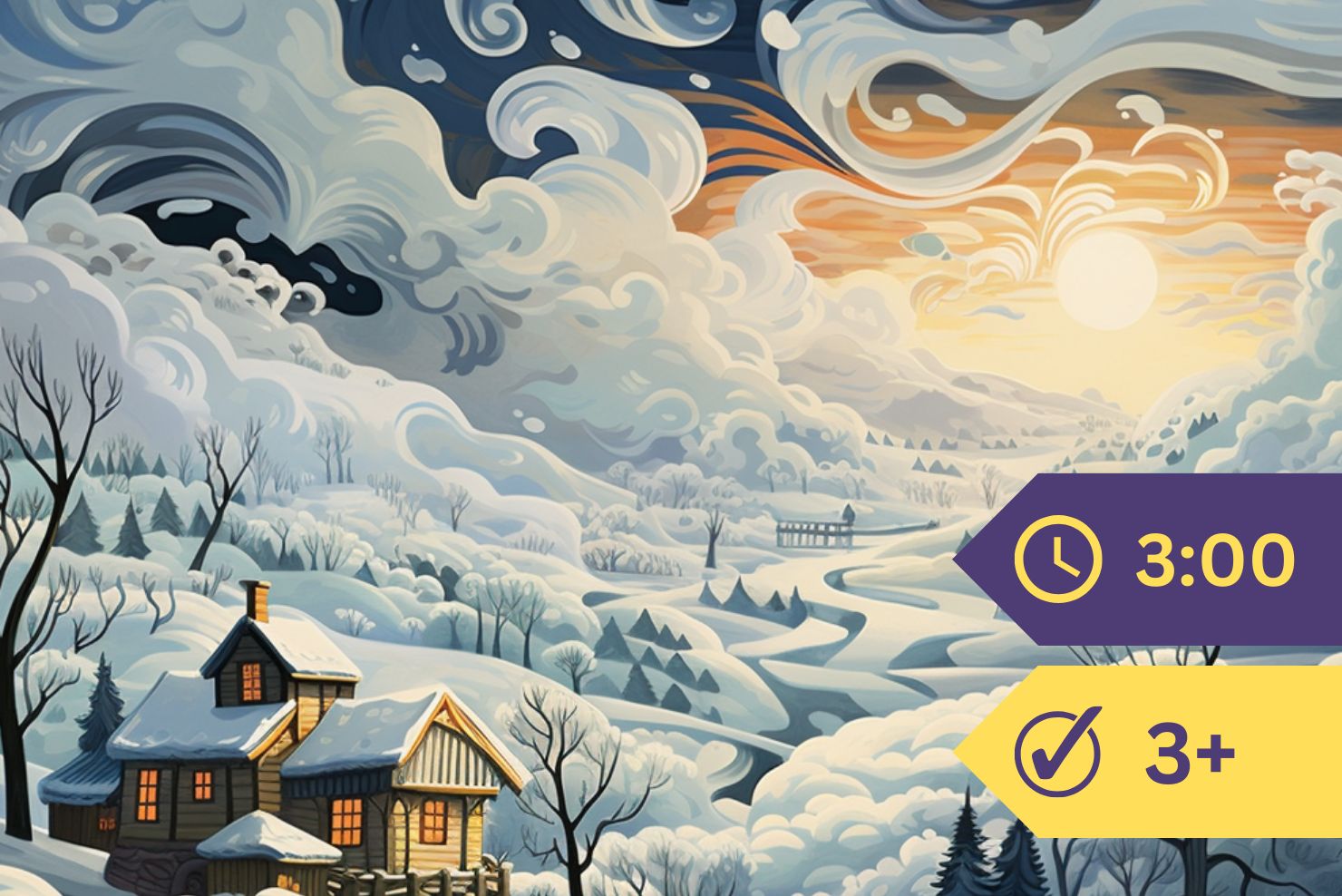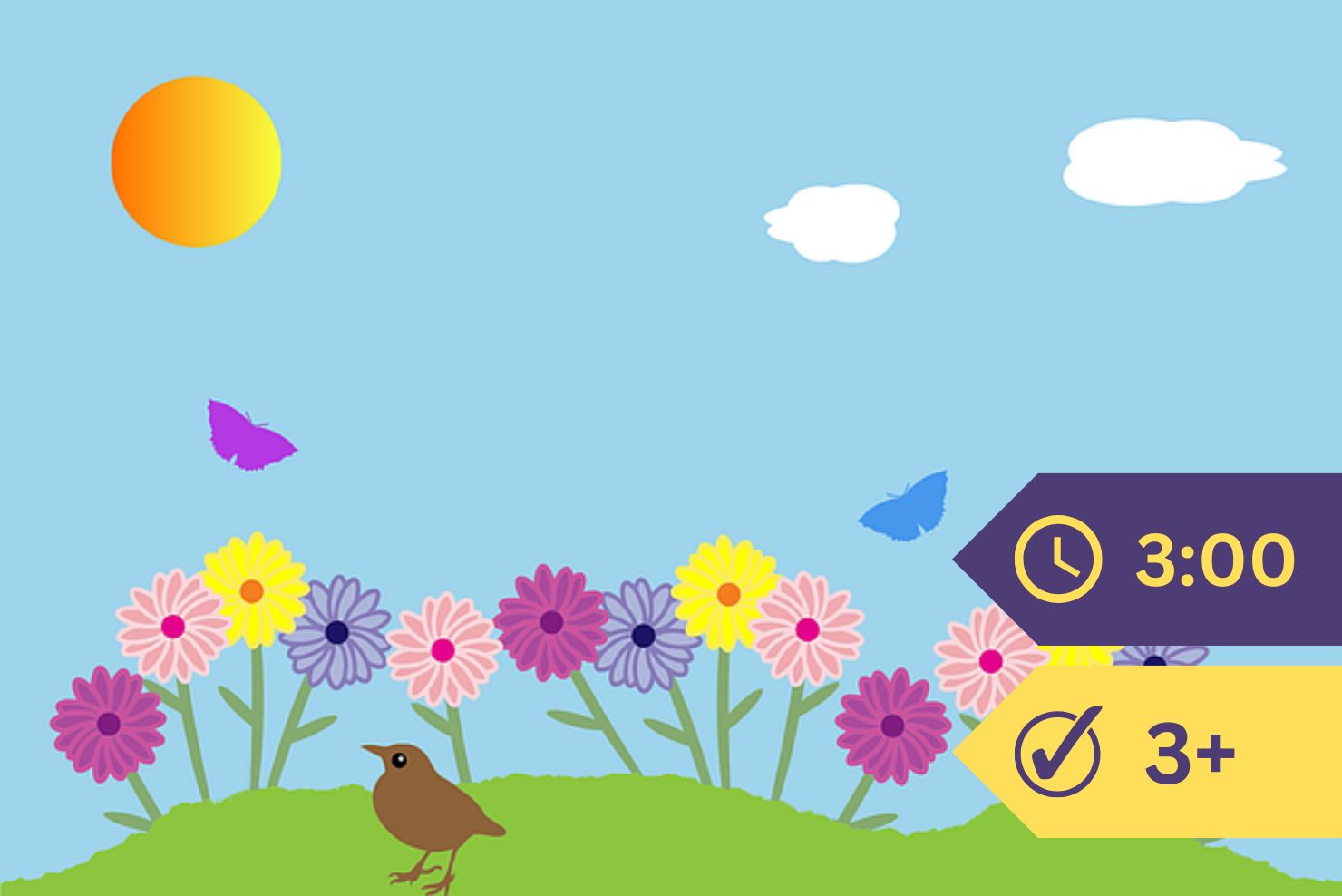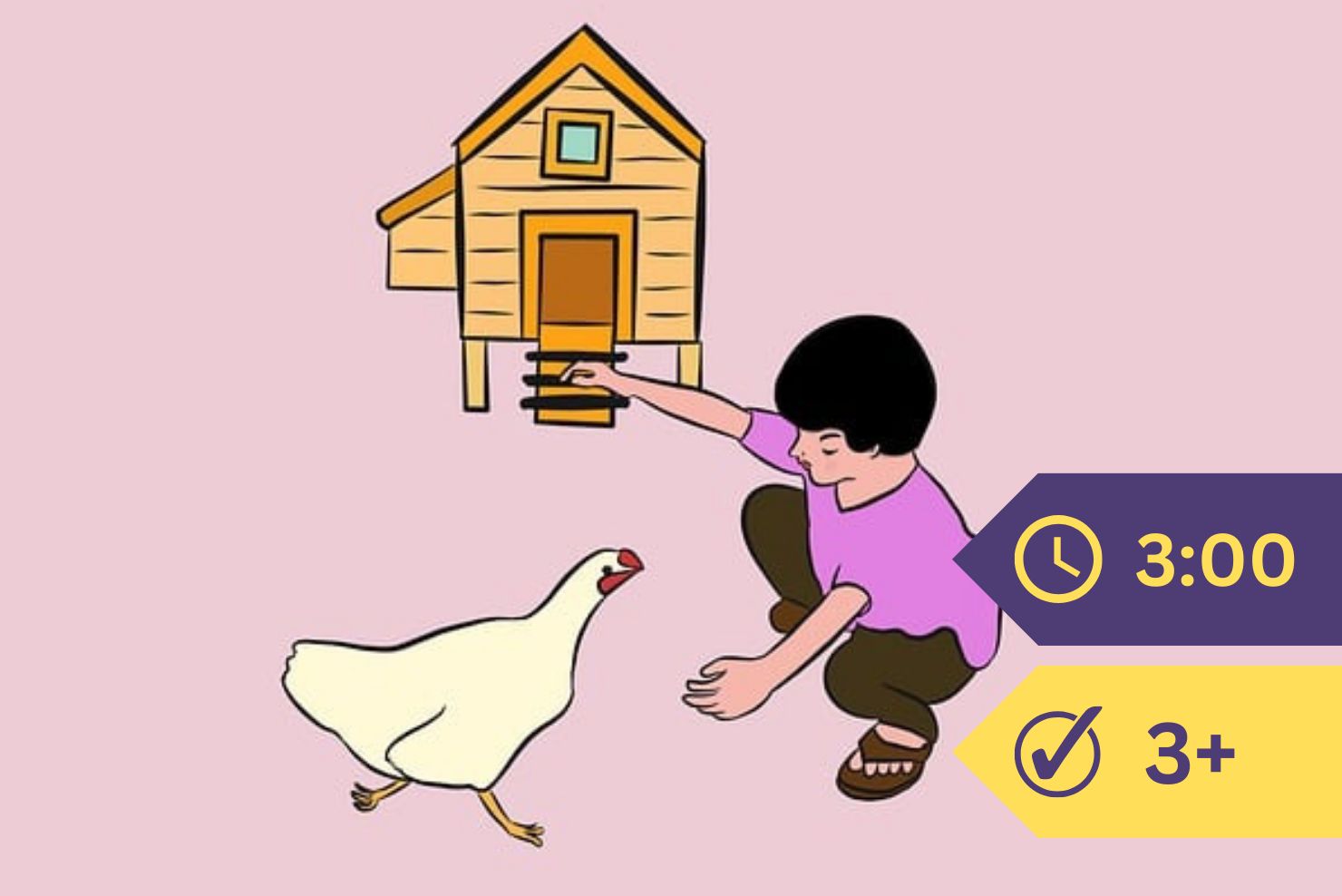Once upon a time, the North Wind and the South Wind met in a field by a river. The North Wind had brought snow the night before, but the South Wind blew soon after and melted almost all of it. Only a few white patches were left on the sunny banks of the stream.
As soon as the winds came near each other, the South Wind said, “Good morning, brother; I am glad to meet you, though your cold breath quite chills me.”
“But I am not glad to meet you,” answered the North Wind. “Why did you melt my snow so quickly? Could you not let it lie for one day?”
“The time has come for the grass and flowers, you know, brother, and I must be at work,” said the gentle South Wind.
“There was no need for such haste,” said the burly North Wind. “When friends meet, they should be polite.”
“I have to call up the daisies and waken the roses,” said the South Wind, “and make all the fields green by the first of May; I have no time to lose. Look at the meadow, how brown it is; and at these trees, how bare! Hardly a fly is buzzing in the sunshine, and not a tortoise has yet crept out of his hole in the ground.”
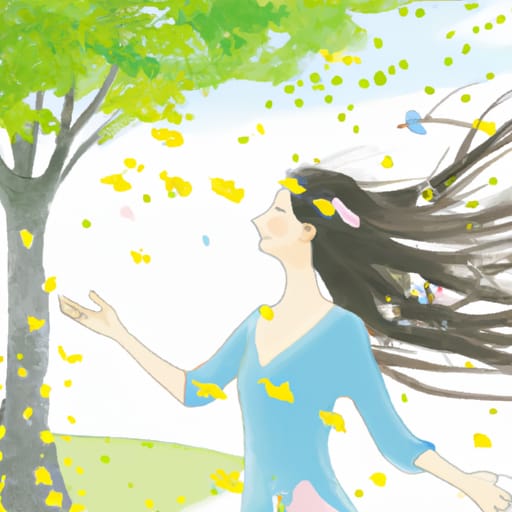
“I do not care for your daisies and your tortoises,” muttered the North Wind. “You want to hurry me off, but I will not go so soon.”
“Have you not had the whole winter to yourself?” asked the South Wind—”freezing the brooks, driving away all my birds and butterflies, and covering the fields and roads and bushes and barns with snow? Do you remember when I came to you for a little visit some bright morning, how quickly you drove me away!”
“The winter is my time,” said the North Wind. “It belongs to me, and you had no right to come then.”
“And the spring is my time,” said the South Wind; “you know the law is that I must have the fields now.”
“You think a great deal of yourself,” said the North Wind, angrily, “but I am stronger than you. I can fly farther and see things you never see. Where do you think I came from this morning?”
“Tell me; I cannot guess,” whispered the South Wind.
“I came all the way from the icy pole, where the sea is frozen over, and the land is covered with snow that never melts. The white bear lives there; I saw one but a few hours ago, watching for fish by a hole that he had broken through the ice.”
“But you never saw my home or the strange sights that are there,” said the South Wind. “I come from the far-off torrid zone, where the snow never falls, and the frost never kills the buds and flowers. There the panther lives. I passed by one last night in the forest, lying out on the branch of a great tree watching for his prey, that he might spring down on it as it passed beneath.”
“But I see the Inuit,” answered the North Wind, “in their skin dresses, living in houses of snow. They fight the fierce walrus on the ice and spear the fur-covered seal from their little boats that dance on the waves. I watch the Northern Lights, so green and beautiful, shooting up like bright flames in the sky, and the night is almost as bright as the day. Then the Eskimo harnesses his dogs and the Laplander his reindeer, and they travel swiftly over the frozen plain. Yesterday I blew with all my might until I loosened a field of ice and sent it out to sea. A white bear was on it, and he sailed on his ice-boat across the sea to Iceland. As I passed the steep, high rocks on the shores of Greenland, I saw the eider ducks brooding there. Each one had lined her nest with soft down plucked from her own breast. Then I frightened them with my hoarse voice, and thousands of them — yes, hundreds of thousands — rose up in the air like a cloud.”
“But let me ask you,” murmured the South Wind, “did you ever hear among your icebergs and frozen waters, the song of the oriole and mockingbird that I hear every day in the woods where I live? You look at your Inuit in their snow houses, but I peep in at the hut of the Indian that stands under the forest shades, or I blow against the sail of his canoe and waft it up some quiet river, where the trees grow thick on each side and meet overhead. The red flamingo wades out into the water, and the monkeys and parrots chatter among the high branches. I see the boa constrictor coiled among the roots on the shore and watch the alligator floating down the stream. My home is among the orange trees and in the fields where the sugar cane grows. There I lie still and sleep, or wake to go forth on my journeys over the earth, not to freeze up the ground and make barren and bare, but to cover it with green, and bring out the buds and flowers in every bush and tree.”
While the winds were talking in this way, the river, which had been listening to them, said, “Why do you thus boast and provoke each other? Why not speak gently and kindly of the wonderful things you have seen? You would not change homes, would you?”
“No, indeed,” each one replied; “I love my own the best.”
“Then,” said the river, “what good can come of disputing when both are satisfied? As for me, I love you both. I am glad for the North Wind to blow cold and cover me with ice in the winter, so that the merry skaters can come and glide swiftly over my smooth surface. And I love the South Wind to breathe softly in the spring, and make my banks smooth again, and waken the frogs along my shore, and bring the fisherman in his boat, and the boys to swim. Let us all be friends, then, and love each other, and be satisfied with what has been given to us.”
Then the North Wind said, “I am willing to be friends again. It is true that the Spring is your time, gentle South Wind. I will not stay to nip your opening flowers, but will fly away to my cold home.”
And the South Wind said, “Forgive me if I was rude, brother. When November shall come once more, I will leave the fields and woods to you. Take this sprig of evergreen to remember me by, and may it not fade until we meet again. Farewell.”
